Gatherings banned in Bangladesh after government buildings burned, dozens killed
Public rallies have been banned by the police in Bangladesh’s capital Dhaka following the most fatal day of continuous student protests, which saw government buildings set on fire by protestors.
Students have once again taken to the streets of Dhaka to protest on Friday, in disregard to the ban on public gatherings imposed after violent clashes resulted in numerous casualties.
The death toll in the ongoing violent student protests against the jobs quota system in Bangladesh climbed to 39 on Friday, while more than 1,500 people have been injured during the clashes.
Student protesters clashed with law enforcement and supporters of the government, resulting in the destruction of government facilities and significant disruptions to telecommunications following several days of demonstrations.
Law enforcement in the capital previously announced that protestors had set ablaze, defaced, and conducted "destructive activities" at various police and government facilities.
Demonstrations against the 56% quota system in public jobs escalated in the South Asian nation this week, prompting the government to close educational institutions across Bangladesh.
As per the quota system, 30% of the 56% quotas in public jobs are allocated for the sons and grandsons of individuals who took part in Bangladesh's war of liberation against Pakistan in 1971.
According to reports, the Bangladeshi government has requested the military to provide security for the residence of Prime Minister Sheikh Hasina.
The police statement said that if the destruction continued, they would “be forced to make maximum use of law.”
Both the governing Awami League party and the opposition Bangladesh Nationalist Party have requested demonstrations on Friday afternoon.
With government-enabled internet blackouts and restricted social media websites, most local media have not updated their websites.
London-based watchdog Netblocks said today that a "nation-scale" internet shutdown remained in effect.
"The disruption prevents families from contacting each other and stifles efforts to document human rights violations," it wrote on a social media platform.
On Thursday, hundreds of students stormed the Dhaka headquarters of the country’s state broadcaster Bangladesh Television, which remains offline, and set fire to a building.
Based on information provided by hospital staff to AFP, at least two-thirds of the reported deaths this week were attributed to police gunfire.
VIDEO | Tehran sky illuminates over
Maduro’s abduction: China says US cannot act as world’s ‘police’ or ‘judge’
VIDEO | Australians protest over US action in Venezuela
Cuba declares national mourning for 32 citizens killed in US raids on Venezuela
Iran: US must release kidnapped Venezuelan president
After US aggression against Venezuela, Mexico could be next: Report
Qalibaf: Protesters must be heard but foreign-linked agitators will be dealt with
VIDEO | German government refuses to condemn US aggression against Venezuela


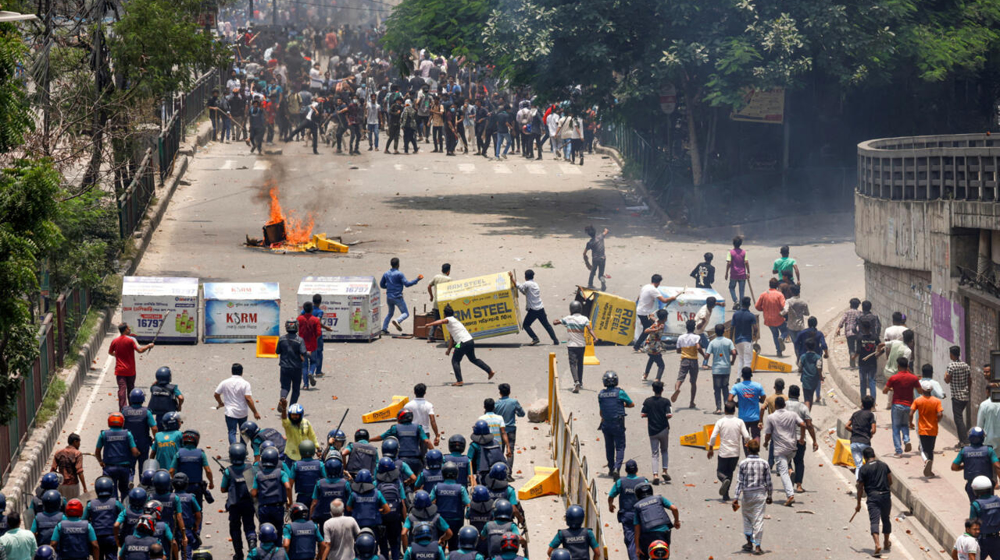
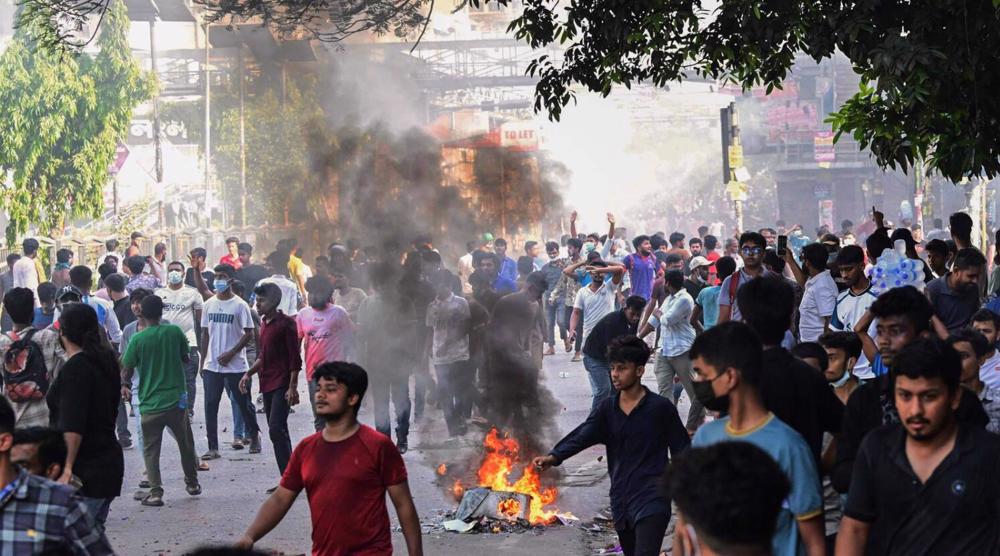
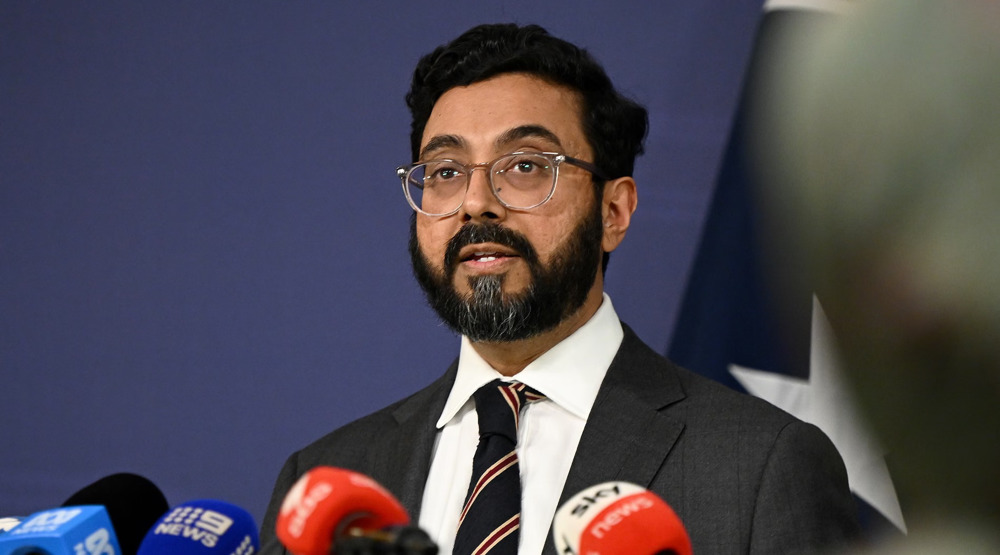
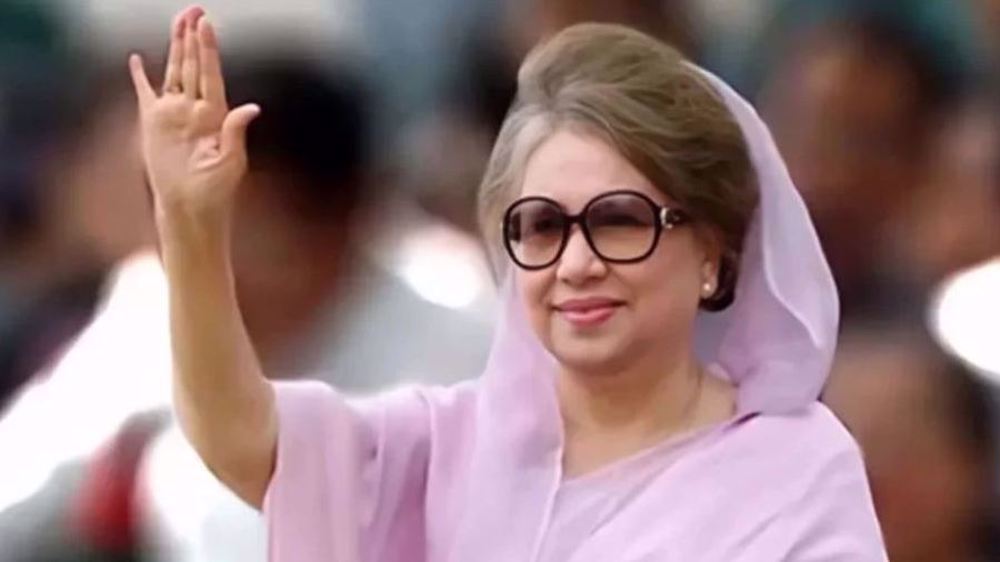
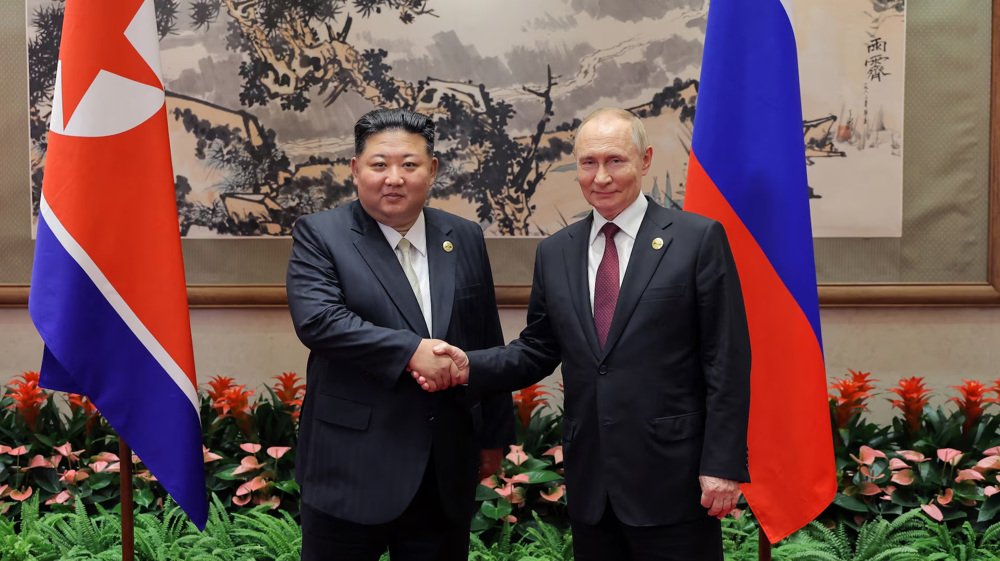



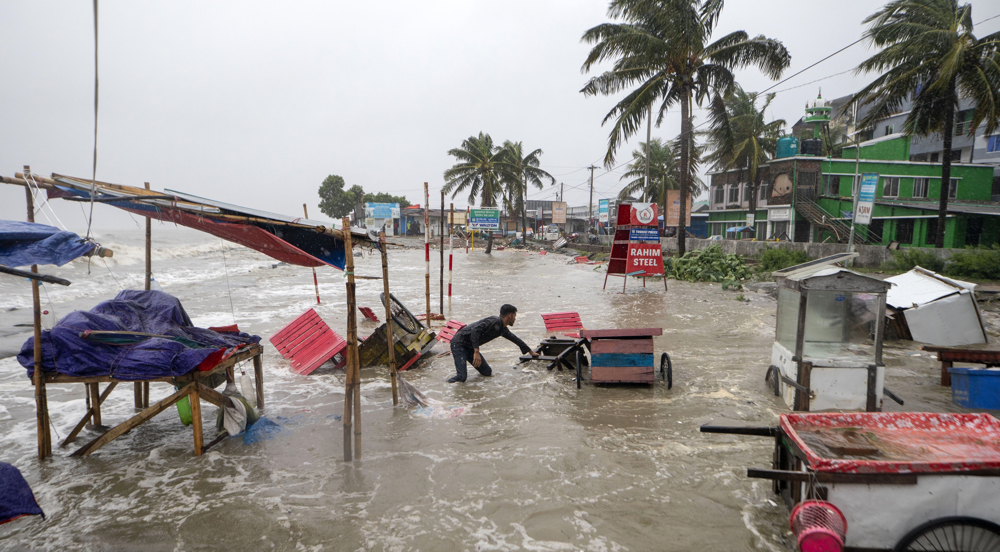
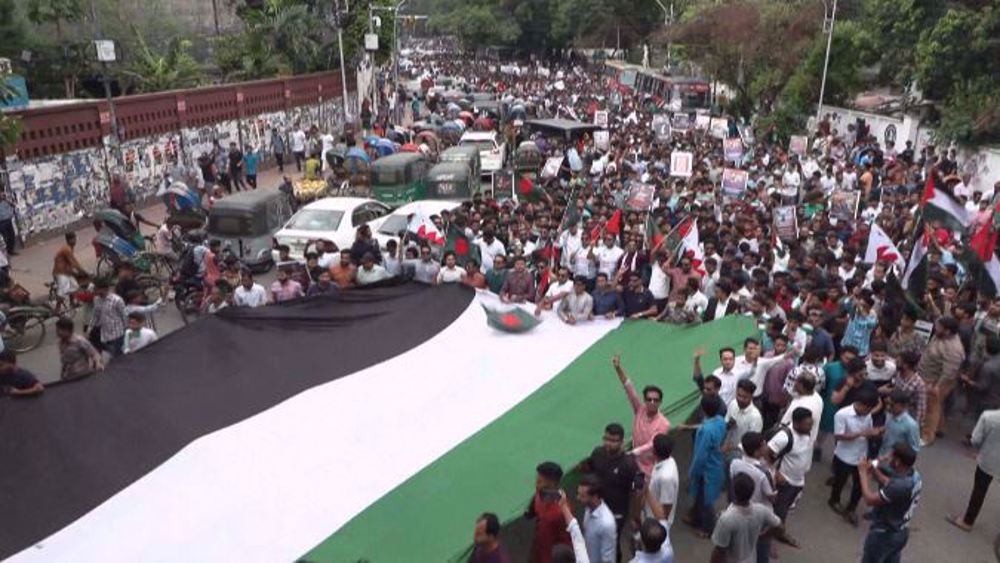
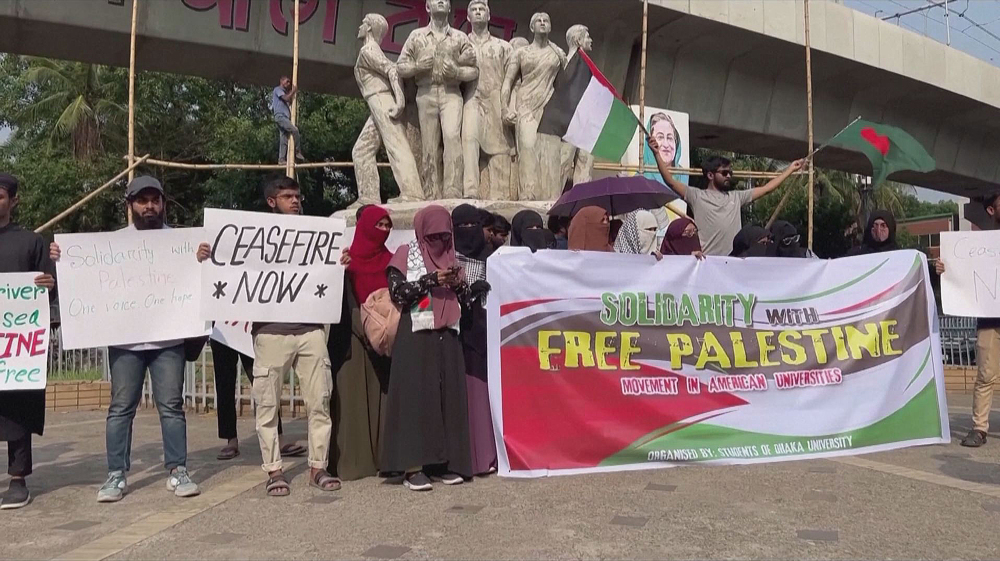
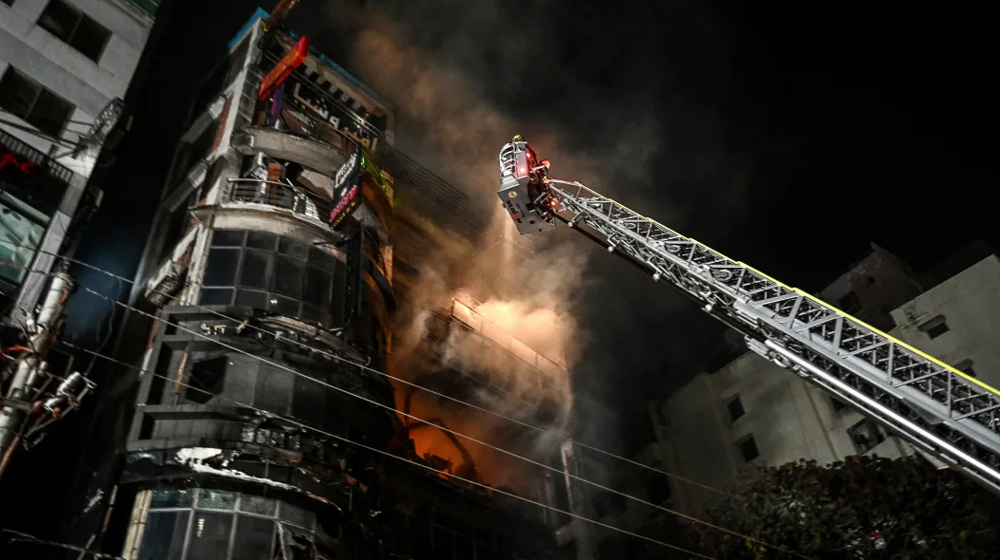
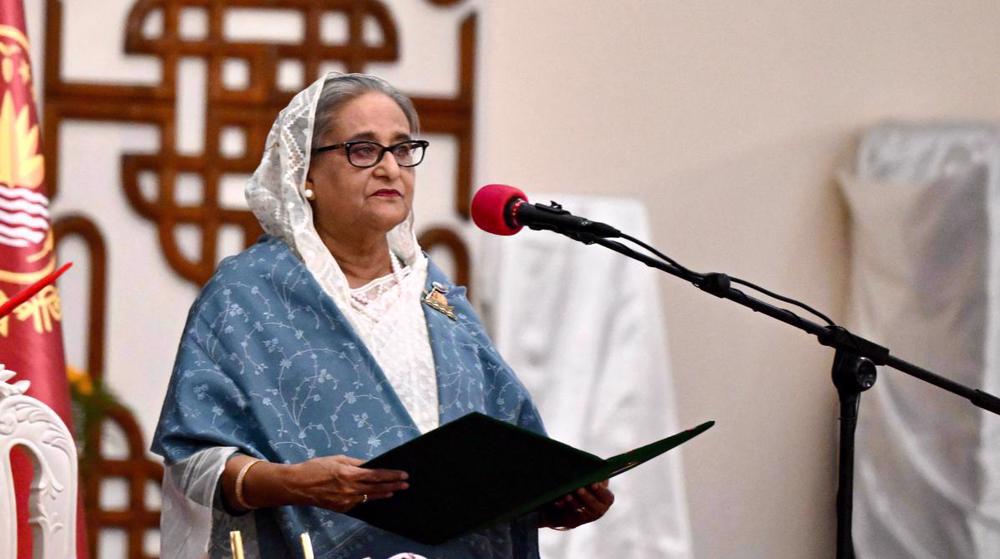
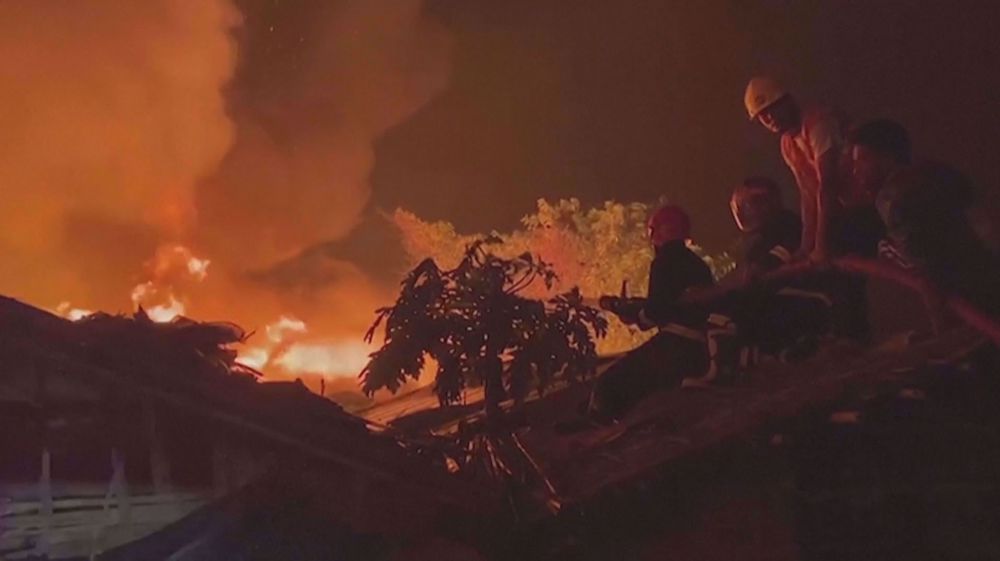
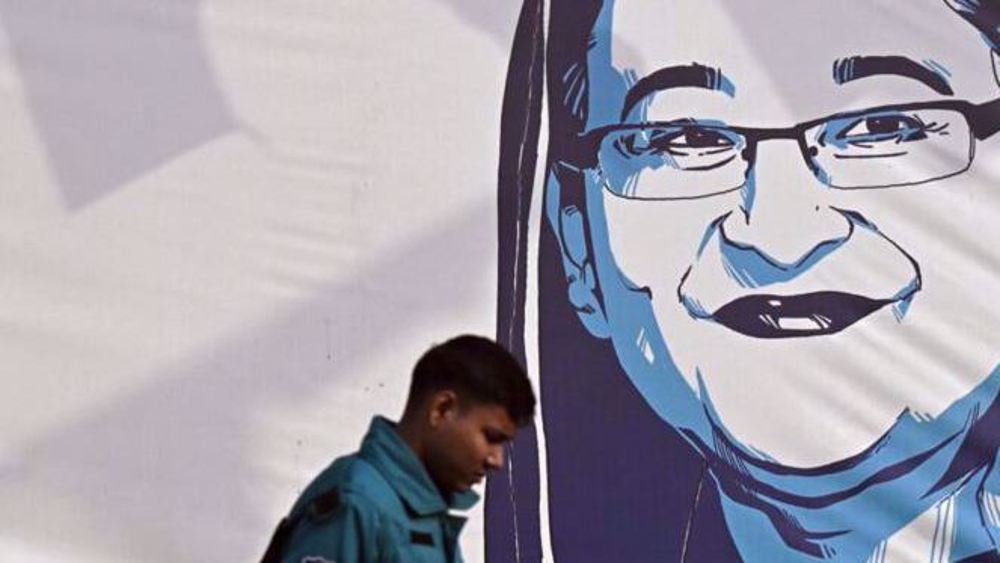
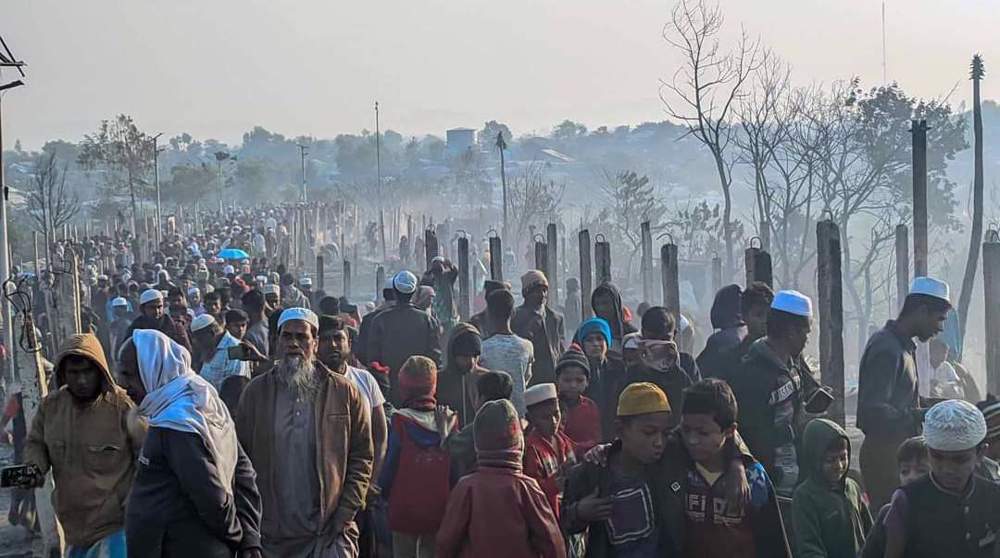

 This makes it easy to access the Press TV website
This makes it easy to access the Press TV website